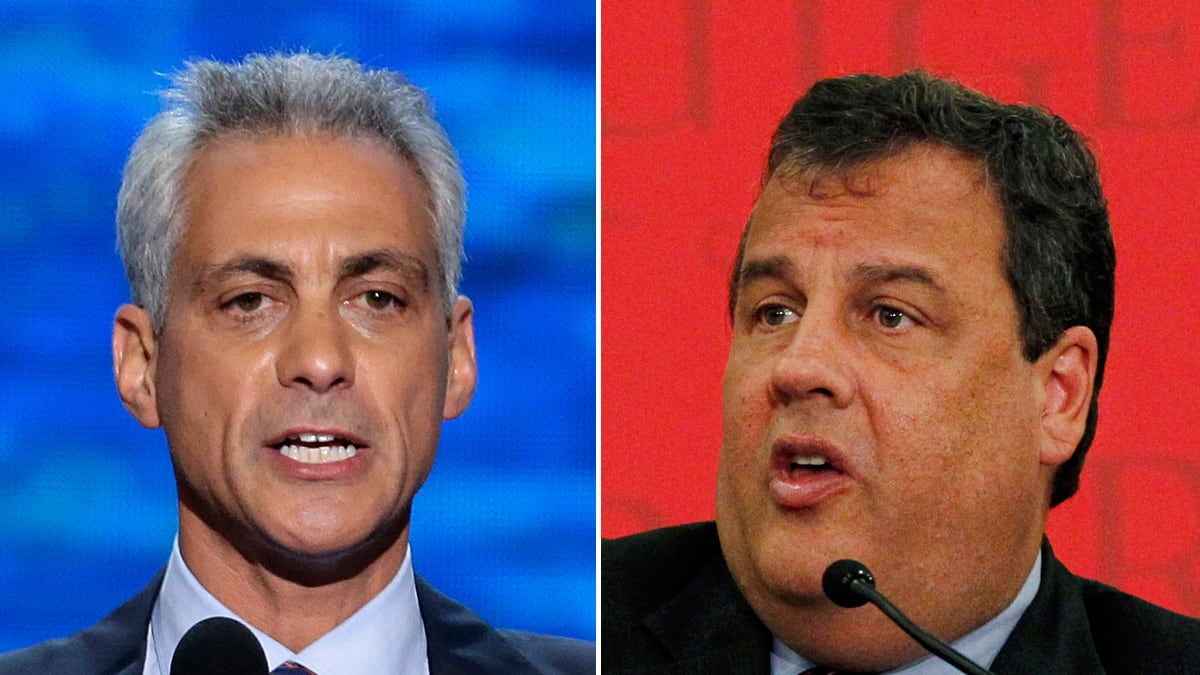The Chicago fire is out for now. The teachers’ strike is over. But the beyond the question of winners and losers in this negotiation is the larger state of play—will more Democrats follow Rahm Emanuel’s lead and declare independence from labor unions?
“The fact that this Democratic mayor was willing to take on the unions, especially during the presidential election is incredibly important,” says Michelle Rhee, the former Washington D.C. schools chancellor and founder of StudentsFirst. “I think it sends a message to the unions that it’s a new day.”
In the arena of education reform, the issue in this new day is results—we’ve been spending more and getting less in terms of student performance. Increased teaching hours, accountability and principal flexibility in hiring coinciding with teacher raises—as Chicago did—is a step in the right direction, if short of a grand bargain. The success of a city like New Orleans, which switched to a charter school model after Katrina with strikingly successful results raises the bar and sets a powerful new example that Democrats can’t afford to ignore, despite union opposition.
The other area where good policy requires political courage is pension reform—that definitively unsexy budget-busting item that no responsible executive, Democrat or Republican, can ignore. The number of cities declaring bankruptcy is on the rise and it’s not just the economy, stupid. Cities can’t simply cut or tax their way out of this hole.
Union rhetoric in the face of attempts to take on these issues can sometimes go beyond tough talk in defense of self-interest to the dishonest and demagogic. One example occurred when Chicago Teachers Union Delegate Jay Rehak told Erin Burnett on CNN’s OutFront that “the mayor has an active attempt to destroy schools and destroy communities” and accused him of “attacking the middle class since he got in.”
Look, we all know that politics ain’t beanbag, but there are growing signs that citizens will reward the courage to take on these tough issues.

In New Jersey, Gov. Chris Christie proved that he could take on the public sector unions and win the fight in the court of public opinion, closing budget gaps without raising taxes and gaining significant concessions on teacher tenure reforms. The sometimes ugly union protests were not successful in demonizing him among the independents who outnumber registered Democrats or Republicans in the Garden State. Even Wisconsin Gov. Scott Walker, who quickly proved more clumsy and polarizing than Christie, survived a recall attempt by a larger number of votes than he was initially elected with, despite an existential full court press by labor unions.
An even more serious wake-up call for Democrats came the same night of the Wisconsin recall, when 70 percent of voters in San Jose and San Diego voted for public-sector union pension reforms that could save their cash-strapped cities billions of dollars. The fact that San Jose’s pensions costs had tripled over the past decade—taking up a quarter of the municipal budget—resonates beyond partisan politics. It is a practical necessity with political support that transcends party lines, even in sky-blue California.
“Solving the pension problem is one of the country’s great challenges and Democrats must actively engage,” says Jim Kessler, co-founder of the centrist Democratic think tank, Third Way. “It’s time to stop pretending that the math works or that the problem will solve itself.”
“Democrats have to take these issues on. And quite frankly, I think that there is a way that you can take them on in a pretty reasonable way,” agrees Michelle Rhee. “You can first and foremost protect the people who are at retirement, or very close to retirement right now, because those people have been living their entire careers with a certain commitment in mind. But certainly for people who are new to the profession, we have to be able to have a real conversation and say ‘you know, if we don’t fix this then you’re going to have nothing at the end of the day and nobody wants that.’”
The answer might be most frequently found on the local level, and ironically, from Democratic mayors. “State legislators and people at the federal level don’t have to deal with the day-to-day pension issues in the way that a mayor does, and so I think the Democratic mayors are the ones who are going to have to sit down at the table,” says Rhee, who is married to Sacramento Mayor Kevin Johnson. “They’re the ones that have probably the best relationships with police, fire, teachers, etcetera. I think a good example of that is Kasim Reed in Atlanta, who was facing an absolutely abysmal fiscal situation and was able to work out with his unions some concessions on what pensions are going to look like moving forward.”
The question for Democrats on a national level is whether they will try to develop signature policy approaches for pension reform and education reform, or whether they will try to be as intransigent on the subject of unions as Republicans are on low-taxes-at-all-costs and fealty to the religious right. Seen in the right light, this is actually an opportunity to do well while doing good. Just as a southern Democrat like Lyndon Johnson was able to deliver on civil rights and Bill Clinton was able to achieve welfare reform by working with House Republicans, there is an opportunity for Democrats to forge responsible, balanced policy on these issues that can pass. The more rigidly ideological alternatives from Republicans will simultaneously be more polarizing, more punishing, and have less chance to pass.
But if national Democrats don’t follow Rahm’s lead and allow play-to-the-base politics to constrain their policy options, they may well find centrist and independent voters looking to Republicans for clear solutions on these fast-moving fiscal crisis—even if President Obama wins the election this fall. Because this is not about personality, it is about practical policy. And ultimately, it’s about leadership.






